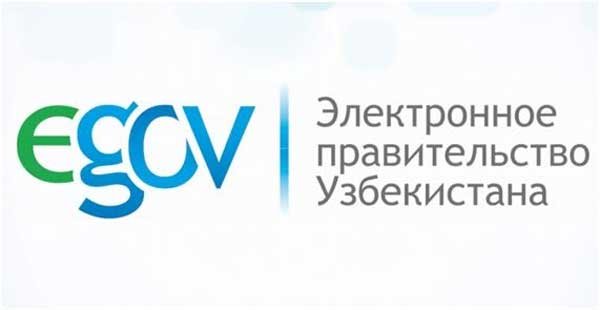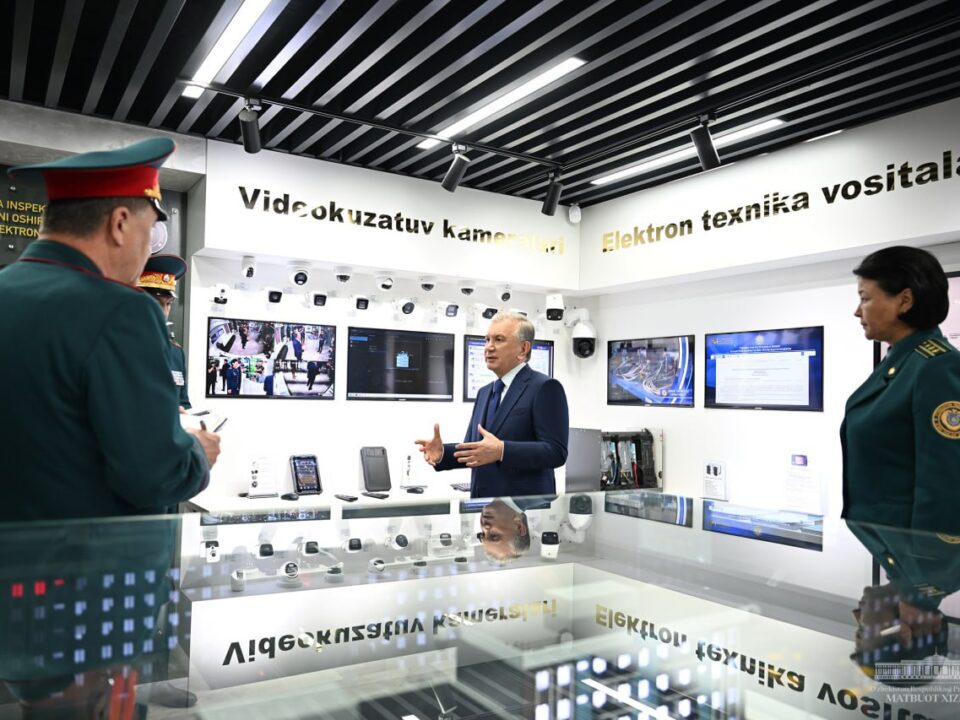From the first days of independence the introduction of information and communication technologies (ICT) has become one of the priority tasks of the state policy in Uzbekistan, which contributes to the achievement of significant results in the formation of the national information space and the enhancement of the management systems efficiency.
The use of IT-technologies enables the transparency of public bodies, creates conditions for active participation of citizens in the process of making important management decisions regarding their interests. In addition, the widespread application of ICT promotes to improve the business environment, increase competitiveness of the national economy, the quality of life of the population.
100% of the tax and statistical reports are submitted via the internet in e-form. Full transition to electronic declaration of goods and registration of export-import contracts are provided, which reduced working day of the customs clearance of goods and provision of other related services from three to one. The development of online payment of taxes, compulsory and communal payments allowed increase the number of users in two-fold and by 2.3 times – for online transactions.
The entry into force of Law «On e-government» which has been adopted recently in June of this year, gives new impetus to the advancement of communication environment. This legal act creates a solid foundation for the further deepening of the reform of public administration and the enhancement of its efficiency. It provides for the consistent implementation and expansion of the modern ICT usage in public administration, establishment and operation of the system «Electronic government», increasing the transparency and openness of government agencies, the responsibility of officials.
Execution of the Law also allows citizens and business entities to increase the efficiency of relations with the authorities and drastically reduce bureaucratic barriers, simplify procedures and deadlines of the online services of government agencies.
It should be noted that during the preparation of a legal act it was taken into account the conceptual foundations of international law and best experience of the USA, Germany, Austria, the Republic of Korea which have reached significant results in the promotion of «e-government» system.
To date, information interaction of state bodies with corporations and individuals is carried out through a single portal of interactive public services (SPIPS) that enables access to information about the activities and functions of the government agencies, provides users with data exchange capabilities in electronic form and requesting queries through a single point of access to integrated interactive public services.
Functional of the one main segments of the system «Electronic government» – SPIPS is rapidly expanding, 260 kinds of interactive services are rendered through it. If in 2013-2014 more than 102 thousand services were rendered for entrepreneurs and citizens, only for 2015 their number exceeded 420 000. Online registrations to the reception of heads of government agencies, obtaining information on their activities, various inquiries and sending requests have become popular.
The highlight of 2015 in this area can be called the launch of the Portal of open data at data.gov.uz aimed at improving the transparency and accountability of public authorities, civil society development through the ability to control and monitor the activities of state bodies and strengthening public confidence in the authorities, formation of applications market and services, and others.
On the base of the information of open data portal, you can create a number of public utility services. In order to popularize this idea, as well as to attract the attention of developers to the portal, it was conducted a competition to create Hackathon web applications for the first time in Uzbekistan, in which participants have demonstrated their ability to build applications and infographics.
In addition to the portal, from 2015 Impact assessment system of legislative acts (IASLA) launched its work at web page regulation.gov.uz, which allows evaluate the newly adopted regulations. Today it is continuously monitored by society for compliance of draft legal acts published by the state authorities with the requirements of laws.
As part of the reforms to create «e-government» with widespread introduction of modern IT-technology measures have been taken to develop electronic workflow in the proceedings. So, in 2013 it was introduced into the Commercial Litigation the possibility of filing a claim, sending judicial acts in electronic form to the persons participating in the case, from September 1, 2014 – the possibility of conducting the trial in the mode of video conference call.
In 2015, under the joint implementation of the US Agency for International Development and the United Nations Development Programme «Partnership in the field of rule of law in Uzbekistan» technical equipment for audio and video fixation of court hearings has been installed in three courtrooms of the Supreme Economic Court and the Commercial Court of Tashkent region.
This allows optimizing and automating of legal proceedings, simplifying of business process and that will contribute to its openness. In the future, audio and video recording of court proceedings can and does eliminate the need for drawing up court records in paper form.
Tax office also conducts active work on the introduction of interactive public e-services. It provides access to services for all users, regardless of their location, capabilities and time of day on free of charge.
Necessary information can be obtained on the official website of the tax authorities www.soliq.uz. In this case the taxpayer is often given personalized information directly from the database of the tax authorities or receipt of reports, statements and other applications have been carried out in the form of an electronic document. Electronic services in almost all areas of tax administration have been developed and implemented for business entities.
These measures will help to reduce costs for the interaction of business entities and individuals with tax authorities, increase the transparency of their activities, the performance efficiency of the functions of the tax authorities to provide public services.
Thus, extensive work in our country has been carried out on the formation of an open and constructive environment between public authorities and citizens, establishment of partnership and effective relations between them through the use of modern ICT potential.
Jahon Information Agency


























